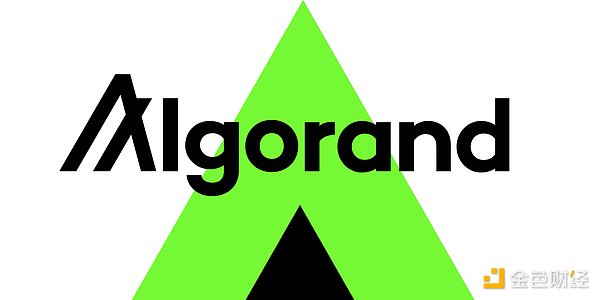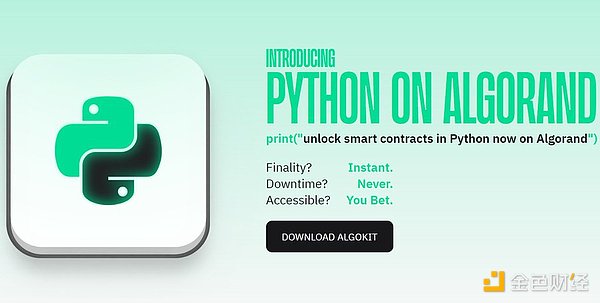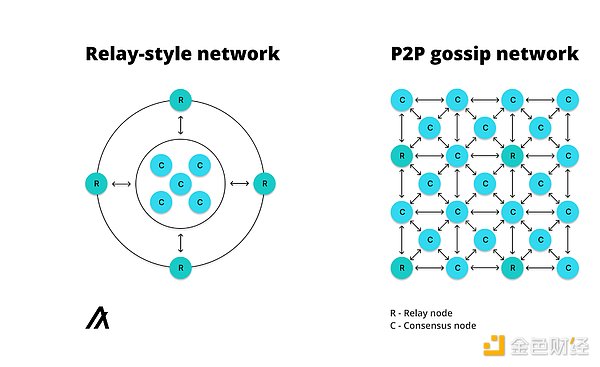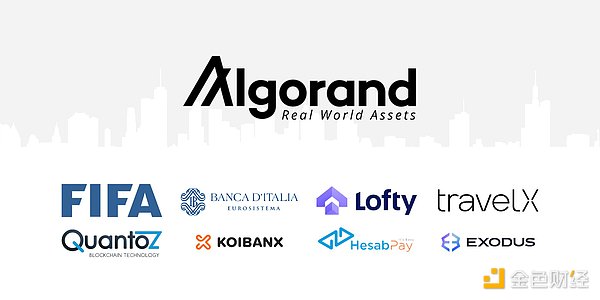Source: B Chain Story
TLDR
AlgoKit 2.0 was released, supporting Python native language and creating a developer-friendly development environment. The scale of Algorand's developer community has expanded rapidly.
The consensus incentive mechanism has been upgraded, and ALGO has been used to reward consensus nodes for participating in the execution of consensus, increasing the application scenarios of ALGO, while further ensuring the security and decentralization of the network.
Fully support the construction of RWA projects on Algorand, and introduce traditional assets into the blockchain by tokenizing real-world assets such as agricultural products, physical assets, air tickets, mutual funds, etc.
Algorand's leading RWA project Lofty helps users invest in properties around the world, with a minimum of only $50 to get rental income immediately.
Hold the "Game Changing Rules" global hackathon to help high-quality projects get priority participation in the upcoming incubation and acceleration programs and obtain financing opportunities.
1. Background
Algorand was founded in 2017 and is a pure proof-of-stake Layer1 blockchain protocol designed to link blockchain and the real world. The founder is Silvio Micali, an outstanding professor at MIT and a pioneer in cryptography. In 2012, Silvio Micali won the Turing Award for his groundbreaking contributions to Verifiable Random Functions (VRF) and zero-knowledge proofs, technologies that are now widely used in the crypto industry. Silvio Micali's deep expertise in cryptography has played an important role in building Algorand's strong technical foundation. Algorand and Silvio Micali were praised and recognized by Gary Gensler, Chairman of the U.S. Securities and Exchange Commission in 2018 and 2019, and can be said to be a star project with a halo on its head.

Since Algorand uses its own state machine, AVM (Algorand Virtual Machine) and ASA (Algorand Standard Asset), as well as its unique programming language TEAL, the threshold for developers to build on the chain is too high. In the last round of bull market led by DeFi, although the price of Algorand rose more than ten times, the ecosystem performed mediocrely and did not meet expectations, and the value of ALGO was not supported by the ecosystem.
In the new cycle,Algorand is making full efforts to connect blockchain and the real world from the aspects of technological innovation, marketing strategy, ecological construction, developer support, etc., to promote the large-scale adoption of blockchain.
2. Technology upgrade promotes adoption
2.1 Release AlgoKit 2.0, support Python language
In order to further support developers, Algorand released AlgoKit 2.0. AlgoKit is Algorand's unique developer tool, which solves complex problems in Web3 by simplifying the setup process and providing various libraries and templates that can be used to easily build Algorand dApps.
AlgoKit also simplifies the development, testing, and deployment process in Web3. Compared with other mainnets, deploying dApps requires developing contracts, testing them on testnets, and then deploying them to the mainnet for final testing, while AlgoKit provides a more efficient way. Developers are able to test and deploy directly on the Algorand mainnet by temporarily opening an isolated space called a "local network." In other words, AlgoKit simplifies the originally complex testing process on testnets and mainnets.
AlgoKit 2.0 provides developers with a complete set of development tools and resources, including smart contract templates, debugging tools, and performance optimization tools. The release of AlgoKit 2.0 enables developers to develop on Algorand more efficiently and improves the quality and performance of applications. Because it is built with the unique TEAL language, most developers are unfamiliar with it, which largely hinders development on Algorand.
Python's simplicity and ease of use enable developers to get started more quickly and develop efficient decentralized applications. There are about 10 million Python developers in the world, which is a very large group. Algorand introduced the native Python language in AlgoKit 2.0, which greatly lowered the development threshold.

After announcing support for the Python language, Algorand's developer community has expanded rapidly. More than 400 teams have registered for the Algorand Global Hackathon, and more than 3,000 Python developers have received technical support from Algorand in the last month alone. This shows that developers have shown great interest and enthusiasm in using Python to build applications on Algorand. From now on, developers can build any ecological application including RWA, DeFi, GameFi, etc. on the chain without obstacles, laying the foundation for the prosperity of Algorand's ecology.
2.2 Dynamic Round Time
In January 2024, dynamic rounds, also known as dynamic lambda, were incorporated into the Algorand network and officially took effect. Dynamic rounds increased the block creation time by 20%, significantly improving network performance. The TPS of the Algorand network increased to 10,000 transactions per second, and the average block time was less than three seconds.
Dynamic round time is actually a very flexible mechanism. The algorithm adjusts the block finality according to network congestion and other factors, thereby shortening the average round time. Builders will be able to benefit from the flexibility of dynamic rounds because it improves the efficiency and scalability of the Algorand network. End users will be able to experience faster confirmations, allowing for seamless and timely interactions with the blockchain.
2.3 Upgrading Consensus Incentives
Unlike other PoS public chains, Algorand currently does not reward nodes for participating in consensus, nor does it have a staking lock and deflation mechanism. In Algorand's PPoS staking mechanism, users retain control of their ownership when they provide ALGO to protect the network. In terms of governance, users must commit a certain amount of governance funds. If their ALGO balance is less than their committed amount, their entire commitment is deemed invalid.
In 2024, Algorand will make its first major upgrade to the consensus mechanism to directly incentivize this participation. That is, Algorand will soon change L1 behavior to reward block producers. The upgrade of the consensus mechanism will drive a surge in the number of staked ALGOs and increase the number of consensus nodes in the network, thereby improving the security and decentralization of the network.
Part of the consensus incentive will come from transaction fees. In the short to medium term, the Algorand Foundation will also contribute to increasing the amount of incentive rewards. Over time, as Algorand's adoption rate continues to increase and the fee structure changes are implemented, transaction fees will become more meaningful and should be able to maintain the security of the network on their own.
2.4 P2P gossip network
In order to further increase the stability and security of the network and promote decentralization. Algorand will move from the current relay network structure to a P2P gossip network.
The current relay network produces blocks in a permissionless manner and transmits them on the network through relay nodes that form a loop to achieve efficient data dissemination. Although extremely efficient, it is not the most decentralized way.

In the P2P gossip network model, data flows directly between consensus nodes to form a decentralized spider web structure. It can effectively reduce the dependence on relay nodes, enabling the network to operate without relays. With the upgrade of consensus incentives, more nodes are expected to join, which will push the Algorand network to take an important step towards a more decentralized direction. The network is more flexible, more stable and secure, and more in line with the decentralized technical core, which will attract more ecological projects to be built on Algorand.
3. Marketing and Ecosystem Building
3.1 New Chief Marketing Officer
In March 2024, the Algorand Foundation announced the appointment of Marc Vanlerberghe as Chief Marketing Officer. Marc Vanlerberghe founded and built the Android brand and developer ecosystem at Google and has more than 20 years of executive marketing experience. Most recently, he served as Chief Marketing Officer of Medallia, a company in the customer experience software field, and CEO of Rulai, an early artificial intelligence company.
Marc will lead the global marketing efforts of the Algorand Foundation, overseeing teams in communications, branding, content, marketing campaigns, social media, and events. The new Chief Marketing Officer will surely bring new market strategies and innovative thinking to promote the further development of Algorand in the blockchain field.
3.2 Changing the Rules of the Game - Global Hackathon
Algorand officially launched the "Changing the Rules of the Game" global hackathon in April, and the registration deadline is June 3. The Algorand Global Hackathon is aimed at developers and entrepreneurs who want to gain deep technical knowledge and experience to build functional solutions and expand the Algorand ecosystem. The Algorand Foundation will support the winning teams beyond the product development stage and give them priority to participate in the upcoming incubation and acceleration programs and obtain financing opportunities.
This hackathon has multiple awards, including: Master Award, AI Award, Best Female Leadership Team Award, AWS Points, etc. At the same time, it has also received support and sponsorship from many well-known projects. The cross-chain leading project Wormhole and the decentralized oracle GoraNetwork sponsored the 16,000 USDCa bonus pool for this hackathon.
The hackathon will bring more high-quality ecological projects to Algorand, as well as more users and funds, and take the first step towards the prosperity of the Algorand ecosystem.
3.3 Linking the Real World
Algorand focuses on supporting ecological applications centered on RWA. It is at the forefront of the entire crypto market in terms of tokenization of physical assets.

The ecological project Lofty has made a breakthrough attempt in the field of real estate tokenization. Users can invest in properties around the world on Lofty. With a minimum of only $50, you can immediately get rental income. As of Q1 2024, Lofty has launched more than 120 properties with a total value of more than $30 million, and has also introduced instant liquidity through a new real estate token AMM.
TravelX has achieved new application scenarios for revenue improvement and customer experience by changing airline inventory from static to dynamic. More than 5 million customers have used its NFT tickets.
Agrotoken tokenizes agricultural products such as soybeans, corn, wheat, and coffee to provide loans to farmers and help the development of physical agriculture. The soybeans recorded on the blockchain have increased from 1,000 tons to 230,000 tons in a short period of time.
The famous crypto wallet Exodus is the first US company to obtain listing authorization from the New York Stock Exchange (NYSE). Exodus's shares will be tokenized on Algorand and have been fully verified by the SEC.
By tokenizing real-world assets such as agricultural products, physical assets, air tickets, mutual funds, and introducing these traditional assets into the blockchain ecosystem, it can not only improve the liquidity and transparency of assets, but also bring higher efficiency and security.
Building the first public chain of RWA
A new chief marketing officer, a global hackathon, and Decipher 2024 in Barcelona, inviting active developers on the chain to participate, helping projects to build and operate through seminars, master training courses and other activities. This continuous support for developers and ecological projects demonstrates Algorand's investment and dedication in ecological development.
Through technical upgrades, adopting the developer-friendly Python language; providing developers with an easy-to-use development toolkit AlgoKit 2.0 toolkit; upgrading the consensus mechanism to enhance network security; adopting a P2P gossip network to improve decentralization, Algorand has fully upgraded the underlying infrastructure of the protocol. The underlying foundation determines the superstructure. The upgrade and iteration of infrastructure will better serve the development and prosperity of the ecosystem.
Through a comprehensive upgrade, Algorand is ready to fully undertake the ecological takeoff. Whether it is the new fields of AI, RWA and DePIN that everyone is generally concerned about, or the various sub-tracks such as DeFI, GameFi, SocialFi, etc. that have been innovating, they can all be easily built on Algorand. RWA technology has brought far-reaching impacts to Web3 by introducing real-world assets into the blockchain ecosystem. It not only improves the liquidity and transaction efficiency of assets, but also promotes the development of decentralized finance and the improvement of global financial inclusion.
With the continuous advancement of technology and the maturity of the market, RWA will play an increasingly important role in the future and promote the widespread application and innovation of Web3. Algorand has been at the forefront of the entire crypto market in the RWA track, and may become Algorand's representative ecological application and become the first public chain of RWA.
 JinseFinance
JinseFinance
 JinseFinance
JinseFinance WenJun
WenJun Beincrypto
Beincrypto Beincrypto
Beincrypto Others
Others Beincrypto
Beincrypto Cointelegraph
Cointelegraph Cointelegraph
Cointelegraph Cointelegraph
Cointelegraph Cointelegraph
Cointelegraph